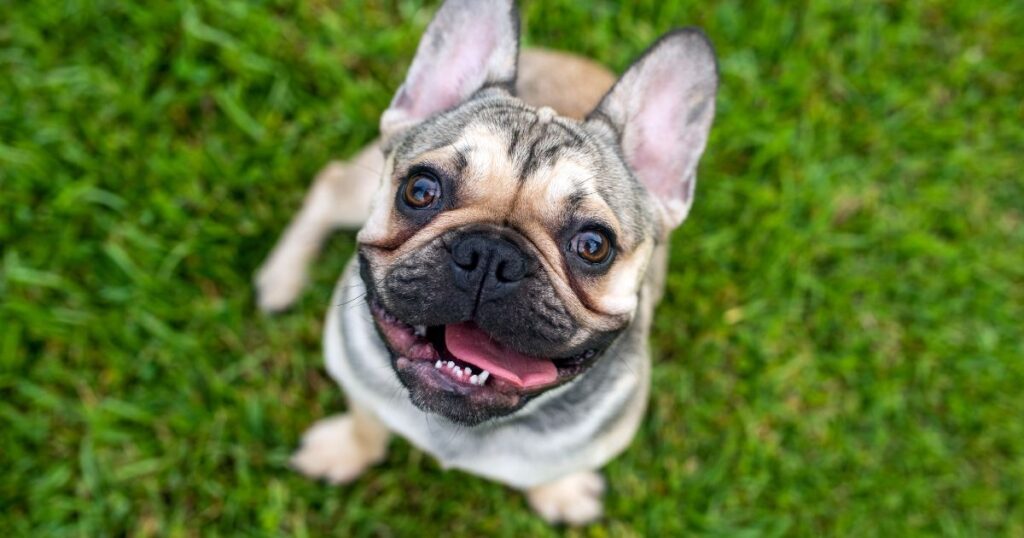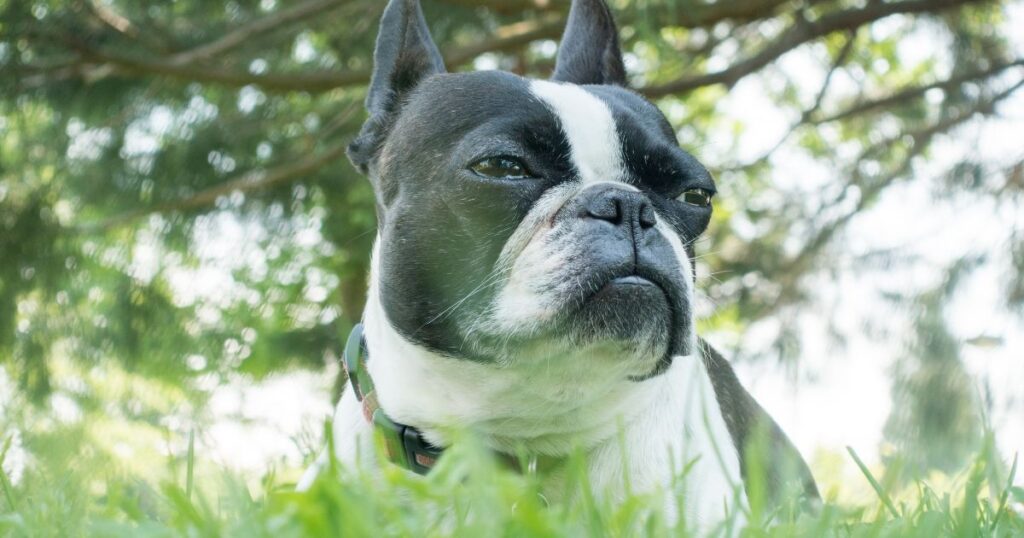French Bulldog Hypothyroidism
French Bulldog Hypothyroidism
| Symptoms | Causes | Treatment |
|---|---|---|
| Unexplained weight gain | Autoimmune disorders | Hormone replacement therapy |
| Lethargy | Certain medications | Regular check-ups |
| Dull coat | Congenital condition | Balanced diet |
| Increased sensitivity to cold | Genetic defects | Regular exercise |
| Skin issues | Environmental factors | Adequate rest |
Ever wondered why your Frenchie, Croissant, seems more interested in snoozing than playing fetch? It could be French Bulldog Hypothyroidism, a common but often overlooked condition. Stick around as we unravel this mystery together, one paw at a time!
Introduction
If you’ve ever wondered why your Frenchie seems a bit sluggish or has been gaining weight, it might be more than just those extra treats – it could be a condition called hypothyroidism. Hypothyroidism is a common health issue in French Bulldogs, and understanding it is crucial for your Frenchie’s overall well-being. In this comprehensive guide, we’ll explore everything you need to know about French Bulldog Hypothyroidism, from its causes and symptoms to diagnosis and treatment options.

Hypothyroidism in French Bulldogs can be a bit sneaky, with symptoms that might seem like just typical dog behavior at first. But with the right knowledge and resources, you can ensure your Frenchie lives a happy, healthy life.
What is Congenital Hypothyroidism in French Bulldogs?
Before we dive into the specifics of hypothyroidism in French Bulldogs, let’s take a moment to understand what hypothyroidism really is. Hypothyroidism is a condition that occurs when the thyroid gland doesn’t produce enough thyroid hormones. These hormones play a vital role in regulating your Frenchie’s metabolism – the process by which their body converts food into energy. When these hormone levels are low, it can lead to a range of symptoms, including weight gain, lethargy, and a slower metabolic rate.
Hypothyroidism vs. Hyperthyroidism in French Bulldogs
| Condition | Symptoms | Treatment |
|---|---|---|
| Hypothyroidism | Weight gain, lethargy, dull coat | Hormone replacement therapy |
| Hyperthyroidism | Weight loss, increased appetite, restlessness | Medication, dietary changes |
The Role of the Thyroid Gland
To fully grasp hypothyroidism, we need to talk about a small but mighty part of the body – the thyroid gland. This butterfly-shaped gland located in the neck produces two main hormones – thyroxine (T4) and triiodothyronine (T3). These hormones are essential for regulating your Frenchie’s metabolic rate, which affects everything from their energy levels to their body temperature and weight. When the thyroid gland isn’t functioning properly, it can lead to conditions like hypothyroidism.
Thyroid Hormones and Their Functions
| Hormone | Function |
|---|---|
| T3 (Triiodothyronine) | Regulates metabolism |
| T4 (Thyroxine) | Regulates metabolism, growth, and development |

Are Bulldogs Prone to Hypothyroidism?
Now that we’ve covered the basics of hypothyroidism and the thyroid gland, let’s focus on how this condition specifically affects our beloved Frenchies. French Bulldogs, like other breeds, can be prone to hypothyroidism. This can be due to various factors, including genetic defects, autoimmune disorders like autoimmune thyroiditis, or even certain environmental factors. Understanding these risk factors can help you take proactive steps to ensure your Frenchie’s health and well-being.
Common Health Issues in French Bulldogs
| Health Issue | Symptoms | Treatment |
|---|---|---|
| Hypothyroidism | Weight gain, lethargy | Hormone replacement therapy |
| Brachycephalic Syndrome | Difficulty breathing, snoring | Surgery, weight management |
| Hip Dysplasia | Difficulty moving, pain | Surgery, physical therapy |
What are Signs of Hypothyroidism in Dogs?
Hypothyroidism can be a bit sneaky, with symptoms that might seem like just typical dog behavior at first. However, there are a few signs to watch out for. These can include unexplained weight gain, lethargy, a dull coat, and increased sensitivity to cold. Some Frenchies with hypothyroidism may also experience skin issues, such as infections or darkened areas. If you notice any of these symptoms in your Frenchie, it’s essential to consult with a vet for a proper diagnosis.
Signs of Hypothyroidism in French Bulldogs
- Unexplained weight gain
- Lethargy
- Dull coat
- Increased sensitivity to cold
- Skin issues

Causes of Hypothyroidism in French Bulldogs
You might be wondering, ‘Why does my Frenchie have hypothyroidism?’ Well, there are a few different reasons, and some of them might surprise you. Hypothyroidism in French Bulldogs can be caused by a variety of factors, including autoimmune disorders, certain medications, or even a congenital condition. In some cases, the cause may be unknown. However, understanding the potential causes can help you and your vet develop a treatment plan tailored to your Frenchie’s needs.
Causes of Hypothyroidism in French Bulldogs
- Autoimmune disorders
- Certain medications
- Congenital condition
- Genetic defects
- Environmental factors
Diagnosing Hypothyroidism in French Bulldogs
If you suspect your Frenchie might have hypothyroidism, the next step is getting a proper diagnosis. This typically involves a thorough physical examination by a vet, along with blood tests to measure your Frenchie’s thyroid hormone levels. These tests can help confirm a diagnosis of hypothyroidism and rule out other potential health issues. Remember, early detection is key to managing this condition and ensuring your Frenchie’s long-term health.
Treatment Options for French Bulldogs with Hypothyroidism
Discovering your Frenchie has hypothyroidism might feel overwhelming, but don’t worry – there are several treatment options available. The most common treatment is hormone replacement therapy, which involves giving your Frenchie synthetic thyroid hormones to balance their hormone levels. This treatment is typically lifelong but can significantly improve your Frenchie’s quality of life. It’s also important to monitor your Frenchie’s condition regularly and adjust their treatment as needed.
Treatment Options for French Bulldogs with Hypothyroidism
- Hormone replacement therapy
- Regular check-ups
- Balanced diet
- Regular exercise
- Adequate rest

How Long Can Dogs Live with Hypothyroidism?
Having a Frenchie with hypothyroidism might require some adjustments, but with the right care, they can lead a happy and healthy life. With proper treatment and regular check-ups, French Bulldogs with hypothyroidism can live just as long as other Frenchies. Remember, managing hypothyroidism is all about maintaining a balance – and with your love and care, your Frenchie can thrive.
Tips for Managing Hypothyroidism in French Bulldogs
- Regular vet check-ups
- Balanced diet
- Regular exercise
- Adequate rest
- Regular monitoring of symptoms
Discovering your Frenchie has hypothyroidism might feel overwhelming, but don’t worry – there are several treatment options available. With proper treatment and regular check-ups, French Bulldogs with hypothyroidism can live just as long as other Frenchies.

Conclusion
Navigating the world of French Bulldog hypothyroidism can be a bit daunting, but remember, you’re not alone in this journey. With the right knowledge and resources, you can ensure your Frenchie lives a happy, healthy life. Whether you’re dealing with a diagnosis or just want to learn more, remember that every step you take is a step towards better health for your Frenchie.
Things to Discuss with Your Vet if You Suspect Hypothyroidism
- Your Frenchie’s symptoms
- Any changes in behavior or appetite
- Your Frenchie’s diet and exercise routine
- Any medications your Frenchie is currently taking
- Your Frenchie’s overall health history
Disclaimer: This article is intended for informational purposes only. It’s not a substitute for professional veterinary advice, diagnosis, or treatment. Always seek the advice of your veterinarian with any questions you may have regarding your pet’s health.
For more information on French Bulldog health and care, check out these articles: French Bulldog Health and Care and French Bulldog health issues.
See also my pages on: French Bulldog Von Willebrand’s Disease and French Bulldog Cherry Eye
Frequently Asked Questions
What are signs of hypothyroidism in dogs?
Signs of hypothyroidism in dogs can include unexplained weight gain, lethargy, a dull coat, increased sensitivity to cold, and skin issues. If you notice any of these symptoms in your dog, it’s important to consult with a vet for a proper diagnosis.
Are Bulldogs prone to hypothyroidism?
Yes, Bulldogs, including French Bulldogs, can be prone to hypothyroidism. This can be due to various factors, including genetic defects, autoimmune disorders, or certain environmental factors.
How long can dogs live with hypothyroidism?
With proper treatment and regular check-ups, dogs with hypothyroidism can live just as long as other dogs. It’s all about maintaining a balance and ensuring your dog gets the right care.
What is congenital hypothyroidism in French Bulldogs?
Congenital hypothyroidism in French Bulldogs is a condition where the dog is born with a thyroid gland that doesn’t produce enough thyroid hormones. This can lead to various symptoms, including stunted growth and developmental issues.
What triggers hypothyroidism in dogs?
Hypothyroidism in dogs can be triggered by various factors, including autoimmune disorders, certain medications, or a congenital condition. In some cases, the cause may be unknown.
What happens if dog hypothyroidism is left untreated?
If left untreated, hypothyroidism in dogs can lead to serious health issues, including heart problems, weight gain, and skin infections. It’s important to get a proper diagnosis and start treatment as soon as possible if you suspect your dog has hypothyroidism.
What are early warning signs of thyroid problems?
Early warning signs of thyroid problems in dogs can include changes in appetite, weight gain or loss, changes in behavior, and skin issues. If you notice any of these signs, it’s important to consult with a vet.
How do dogs act when they have thyroid problems?
Dogs with thyroid problems may show changes in behavior, such as increased lethargy or aggression. They may also experience physical symptoms, such as weight gain, skin issues, or changes in their coat.






